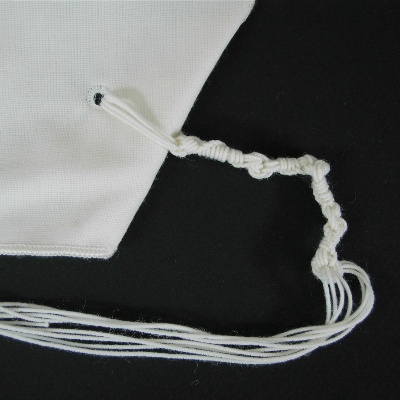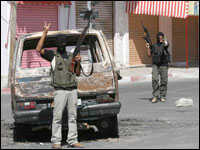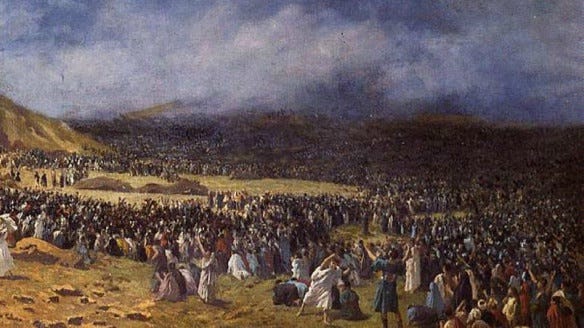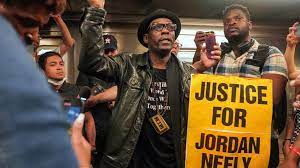For a great example of sheer, rabid hatred of Israel, lightly disguised antisemitism and the sort of imbecility sometimes born of youth, you couldn’t do better than CUNY School of Law student Fatima Mohammed’s vomitus of venom, in the form of her May 12 commencement speech.
Or, for an example of a well-earned misstep, any better than Palestinian activists’ ill-fated demand that Ms. Mohammed’s diatribe, which had been livestreamed on the school’s YouTube account but then removed, be reposted. Which it was, on the 25th.
The overheated orator praised CUNY Law’s faculty and students for endorsing the BDS movement (that endorsement an ugliness of its own), and accused Israel of “indiscriminately rain[ing] bullets and bombs on worshippers, murdering the old and young, attacking even funerals and graveyards, encouraging lynch mobs to target Palestinians, as it imprisons their children and continues the project of settler colonialism…” And so on. You know the litany of lies.
She also used the occasion of her graduation (as a future lawyer – the thought boggles) to lambaste the New York Police Department and the U.S. military as “fascists”; to allege that “daily, brown and black men are being murdered by the state”; and to defend five leaders of the now-defunct Holy Land Foundation who are serving time for providing material support to Hamas.
“May we rejoice,” she righteously declared, “in the corners of our New York City bedroom apartments and dining tables, may it be fuel for the fight against capitalism, racism, imperialism and Zionism around the world!”
On the 26th, a CUNY representative soberly explained that “Members of the Class of 2023 selected student speakers who offered congratulatory remarks and their own individual perspectives on advocating for social justice. As with all such commencement remarks, they reflect the voices of those individuals.” One had to wonder if the rep would have been as sanguine had the commencement speech attacked blacks or Arabs.
Then came the richly deserved backlash.
New York Congressman Ritchie Torres tweeted: “Imagine being so crazed by hatred for Israel as a Jewish State that you make it the subject of your commencement speech at a law school graduation. Anti-Israel derangement syndrome at work.”
Former New York Republican congressman Lee Zeldin called for CUNY’s taxpayer funding – its 2023 budget amounted to about $ 4.3 billion, most from the state, some from the city – to be revoked “until the administration is overhauled and all Jewish students and faculty are welcome again.”
World Jewish Congress head Ronald Lauder called for the law school’s dean, Sudha Setty, who applauded the ungracious graduate’s speech, to be fired.
New York City Mayor Eric Adams condemned the diatribe, as did New York governor Kathy Hochul and a host of other elected officials.
Eventually, CUNY Chancellor Felix V. Matos Rodriguez and the Board of Trustees issued a statement asserting that, while “free speech is precious…. but hate speech… should not be confused with free speech and has no place on our campuses or in our city, our state or our nation. The remarks by a student-selected speaker at the CUNY Law School graduation, unfortunately, fall into the category of hate speech, as they were a public expression of hate toward people and communities based on their religion, race or political affiliation.”
To be sure, rushing predictably to Ms. Mohammed’s defense were anti-Israel groups, including, sadly, Jewish ones. CUNY Law’s Jewish Law Student Association called the reactions to the hater “pander[ing] to the most cynical reactionaries (ie. @NYCMayor).”
“Jews for Racial & Economic Justice” tweeted that its heroine was being thrown to “the wolves. Utterly shameful.” Well, something was, anyway.
As it happens, with her commencement address, Ms. Mohammed was following in her own muddy footsteps. In a May, 2021 tweet, she expressed her wish that “every Zionist burn in the hottest pit of hell.” And the next day, she referenced the fact that she “pray[s] upon the death of the USA.”
In the wake of the uproar over her repulsive remarks, Ms. Mohammed was reached by a reporter at a relative’s home. She told the journalist, “I do not want to speak to anybody.”
It was a little late for reticence. She had already spoken more than enough, and revealed a thickly sullied soul.
© 2023 Ami Magazine









